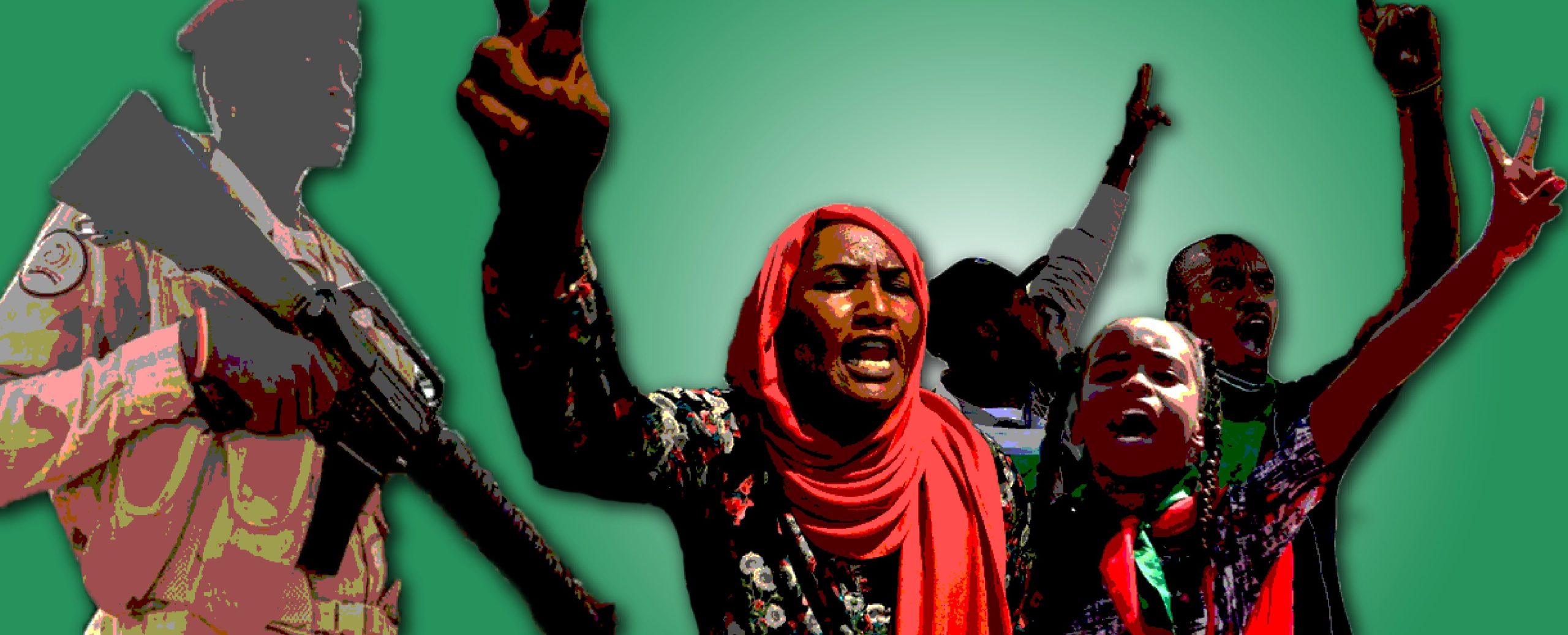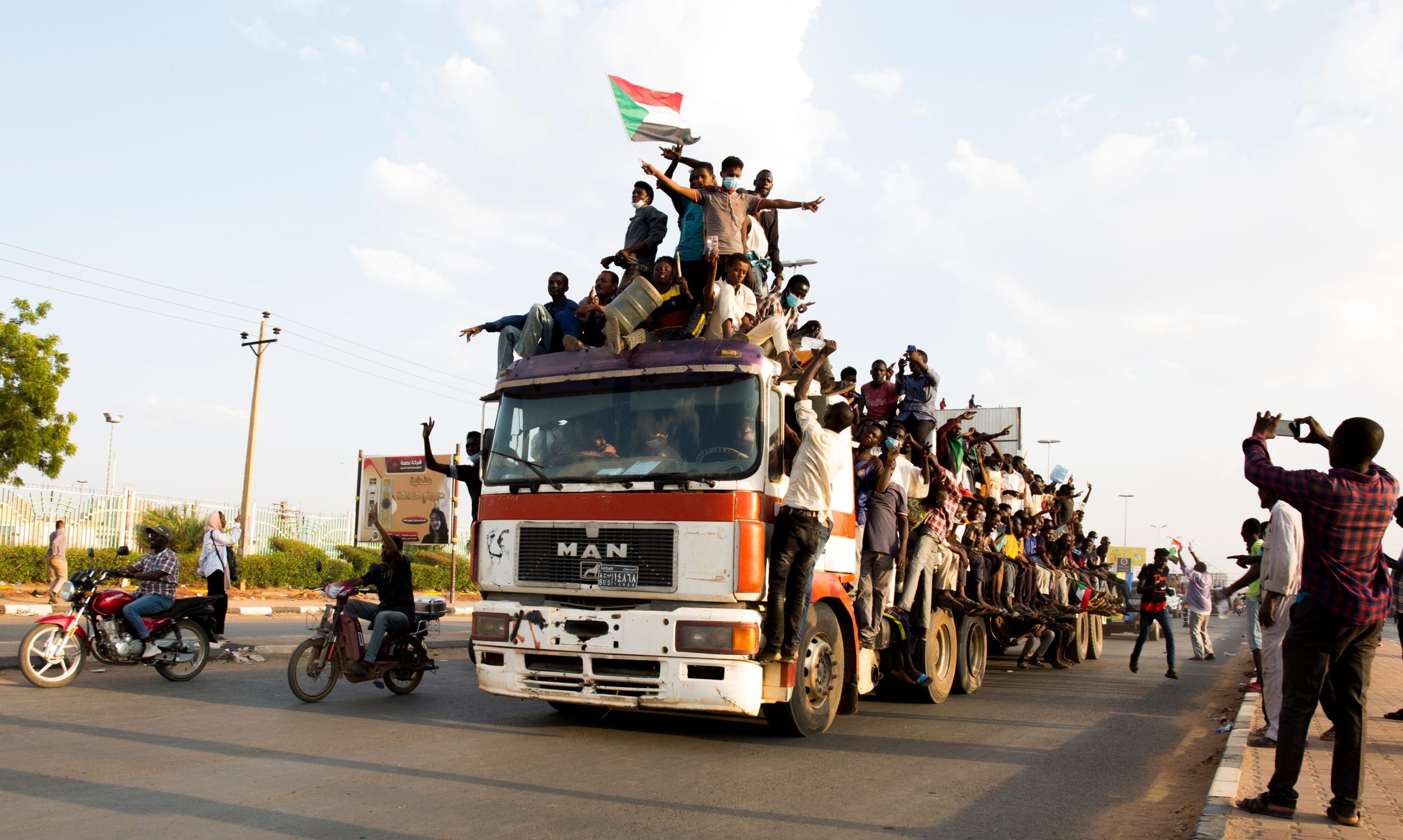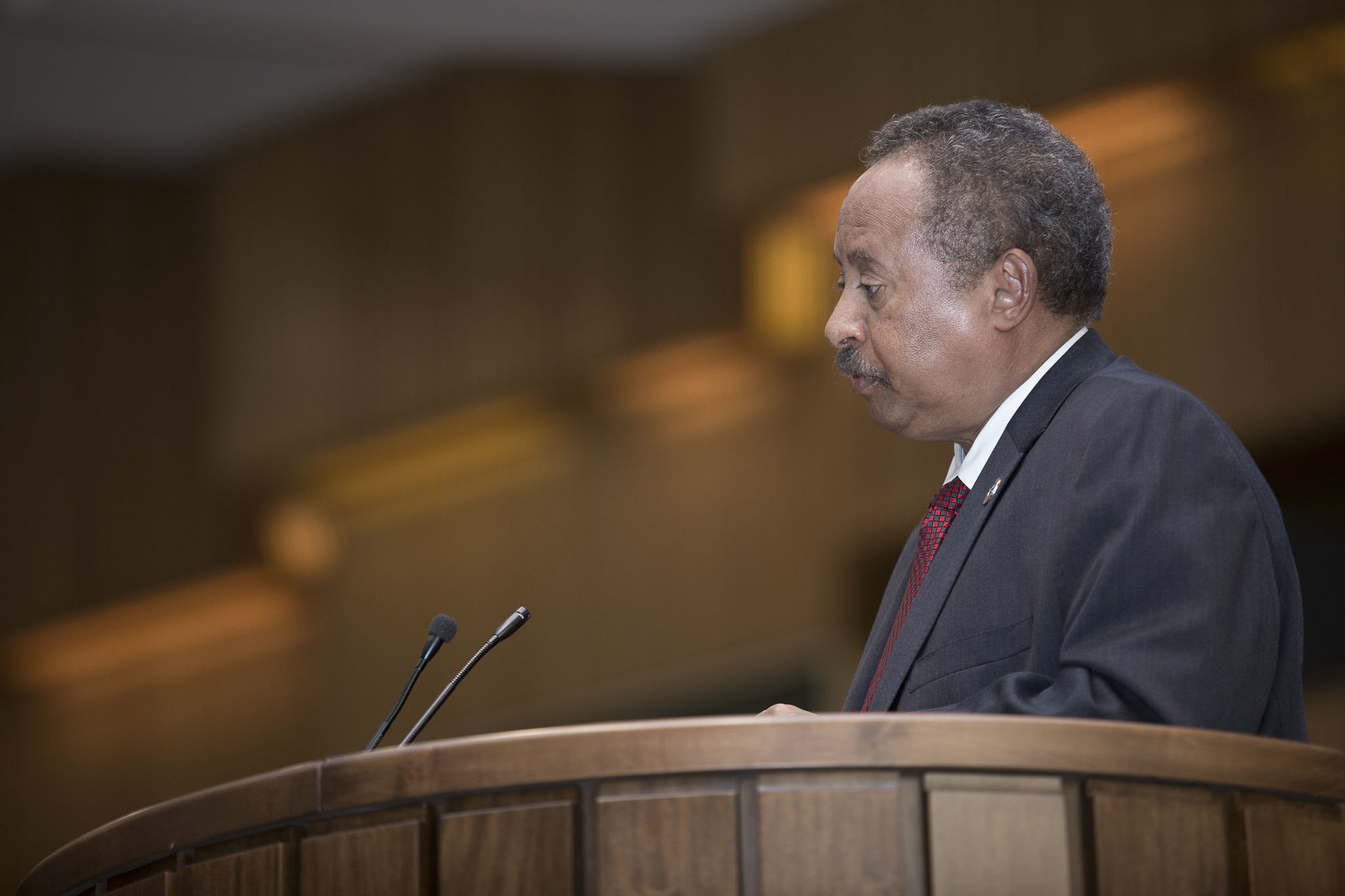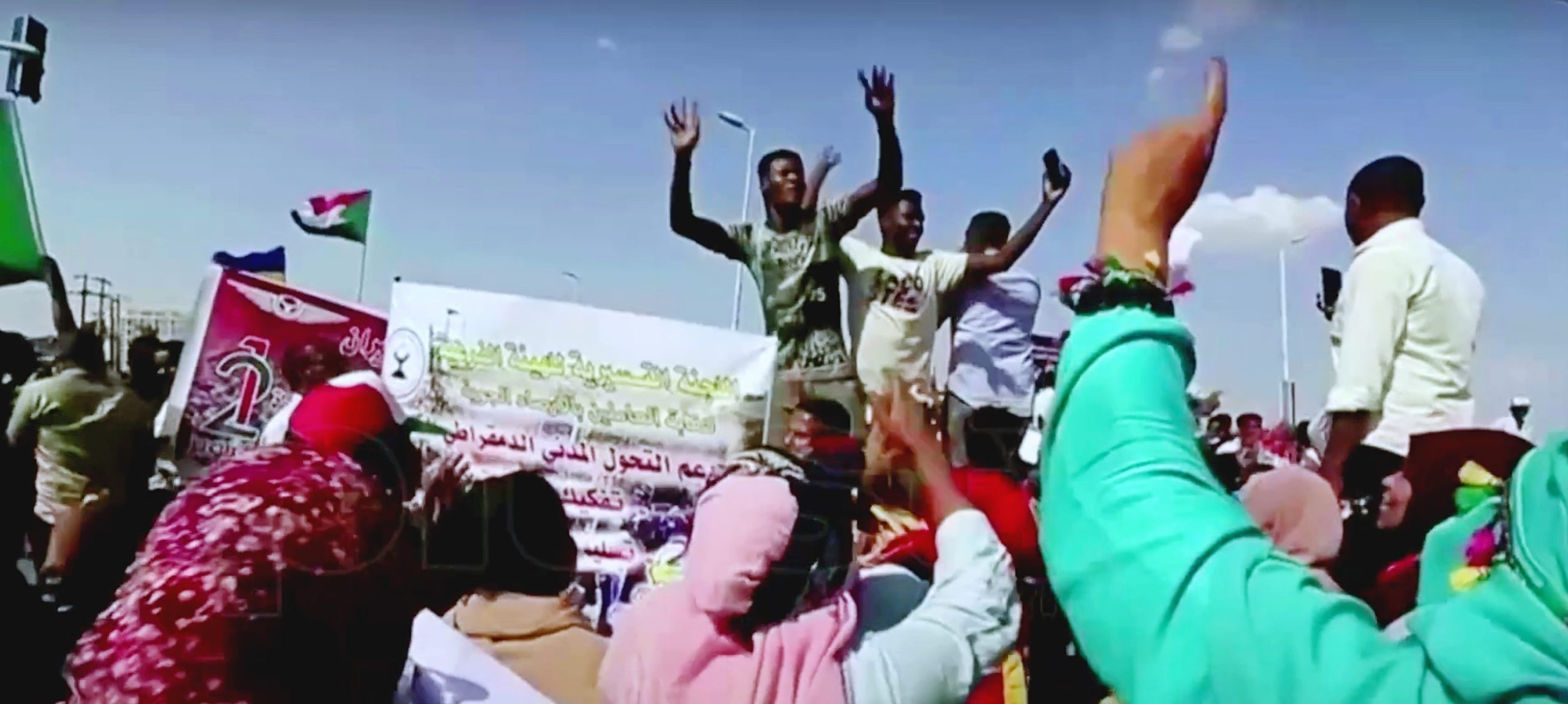
In the weeks following the October 25 coup in Sudan there were numerous reports that the military was looking to name a civilian prime minister to head up the military’s refashioned government. Always high up on the list of candidates was the current transitional prime minister, Abdallah Hamdok, whom the military kept under house arrest while most of the rest of the cabinet and hundreds of other civilian government officials remained in detention.
The November 21 agreement between Lt. General Abdel Fattah al-Burhan and Hamdok appears to be the culmination of the military’s efforts, thereby creating the appearance of continuity in civilian leadership. Acknowledging that the agreement is not optimal, Hamdok has justified the deal as a way to defuse the political standoff following the coup without further loss of life.
While many details remain unclear, as currently stands, the agreement would represent a validation for the military coup. It would also signify a startling turnabout for the military, which has been facing widespread domestic condemnation, escalating popular protests, and international isolation, including the revoking of aid and debt relief. In fact, it was becoming increasingly apparent that the military could not sustain the coup—politically or economically—and would need to find a way to walk back their extralegal action.
Reactions from Civilians
Public reactions to the agreement in Sudan have been mostly highly critical as it falls short of protesters’ demands for the restoration of the internationally recognized pre-October 25 civilian cabinet, release of all political prisoners detained since the coup, and that civilians take over leadership of the transition process from the military. Instead, Hamdok appears to have conceded to the military’s demand that the cabinet be reshuffled to one more pliable to the military’s interests. The agreement, thus, reinforces the fundamental obstacle to Sudan’s democratic transition—the military’s sense of entitlement to run the government.
Twelve civilian ministers from the Forces of Freedom and Change (FFC), a leading civilian coalition, resigned their positions following the deal. All but two ministers from the pre-coup cabinet have now resigned—and those two remain in custody. Moreover, three-quarters of the FFC Central Committee have refused even to meet with Hamdok. He, therefore, appears to have lost his domestic constituency by signing onto the deal with the military.

October 21, 2021 march demanding civilian rule. (Photo: Ola Alsheikh)
Civilians have also contended that the agreement between Burhan and Hamdok lacks a legal basis. The transitional government has been operating from a transitional Constitutional Charter signed in 2019 by the military and leading civilian groups as part of a 3-year transition process. As part of that power sharing deal, the FFC was responsible for appointing the prime minister who would select a cabinet. Furthermore, any amendments to the Charter required the approval of the Legislative Council—or in its absence, the Sovereignty Council and Council of Ministers. Since all these provisions were disregarded, the FFC concludes that the November 21 agreement is between two individuals, not the institutional stakeholders to the 2019 Charter. It consequently lacks both a legal foundation—and legitimacy.

Abdallah Hamdok. (Photo: IHA)
The backbone of the civilian calls for change has been a network of “resistance committees”—grass roots civil society organizations established starting in 2013 to educate the public and advocate for democratic change in Sudan. These diffuse, though well-organized, committees provide a structure to focus and sustain civilian demands for change. Born out of Sudan’s legacy of nonviolent resistance to military and authoritarian rule harkening to the 1964 and 1985 revolutions, these committees represent a distinctive feature of Sudan’s political landscape. These resistance committees have vowed to continue protesting until they see a genuine restoration of the democratic transition process. Since the coup, many of these committees have called for the total and immediate withdrawal of the military from Sudanese politics.
In short, the Burhan-Hamdok agreement has largely not been viewed as credible by Sudan’s key domestic stakeholders. Instead, it is seen as a means of affirming and legitimizing the role of the military in government and Burhan’s position as head of state (a role he assumed but was not authorized under the 2019 Constitutional Charter).
The Military Shows its Hand
The Burhan-Hamdok agreement raises other fundamental concerns over governance norms in Sudan. Paradoxically, rather than having to make political concessions for mounting the coup, the military would be rewarded for coopting the democratic transition.
“The agreement, thus, reinforces the fundamental obstacle to Sudan’s democratic transition—the military’s sense of entitlement to run the government.”
Since the October 25 coup, Sudan’s security forces have also been willing to use lethal force on unarmed civilians. According to the Central Committee of Sudan Doctors, many of the more than 40 protesters who were killed by the military were shot in the head or chest. Security forces, thus, were shooting to kill, not to disperse the protests or protect property. This use of violence speaks to the military’s attitudes toward civilians and public expression. It has also deepened public antipathy for the military, squandering the measure of goodwill that had been established since the democratic transition began in 2019.
Similarly revealing has been the military’s effort since the coup to replace civilian officials with stalwarts from the regime of longtime autocratic ruler Omar al-Bashir. This is significant since the Bashir era had been widely vilified, including by the military, since the 2019 protests. That the military is now apparently attempting to restore elements of the Bashir administration, including Islamists, suggests an affinity for—and interest in maintaining continuity with—the Bashir era, further exposing the military’s lack of commitment to a democratic transition.
Another revelatory move by the military since the coup has been the firing of the Deputy Governor of the Central Bank, Farouck Hussein, as well as the directors of the Nile Bank, Al-Nile Savings Bank, and Industrial Development Bank. These moves have been accompanied by reported pressure on the Central Bank to transfer funds to accounts controlled by the military. This predatory style of government is another trademark of the Bashir era and is consistent with the military’s heavy involvement in the Sudanese economy, purportedly controlling some 250 businesses.
Implications for Sudan’s Democratic Transition
So where does this leave Sudan’s democratic transition? As with all coups, Sudan is on shaky legal ground. The constitutional basis of the Sovereignty Council was established by the 2019 power sharing agreement. Since Burhan dissolved the Sovereignty Council and other transitional governing bodies in his October 25 takeover, his authority as the transitional leader of the Council has also been rescinded. His claim to authority now comes solely from the barrel of a gun. As with other coups, what now is lawful is, effectively, whatever the military says it is.
The same logic applies to the trajectory of the transition. Unfortunately, all indications are that the military was never that serious about a genuine transition. Instead, its objective seems to be to maintain a principal governing role for the military in Sudan, a posture it has held for all but 10 years since independence in 1955. Moreover, as we’ve seen in other coups in Africa over the past year, militaries have limited incentives to lead democratic transitions.
“The Sudanese public has thus far demonstrated that they will not accept the new governing arrangement, despite Hamdok’s reinstatement as prime minister.”
The Sudanese public has thus far demonstrated that they will not accept the new governing arrangement, despite Hamdok’s reinstatement as prime minister. The military, therefore, faces the prospect of ongoing protests, strikes, and other forms of civil disobedience that can cripple the military’s ability to govern. Unlike other African countries experiencing coups, the Sudanese public has a long tradition of non-violent protest and possesses organizational structures that will allow protesters to sustain these efforts.
The military’s gambit to retain control also fails to reconcile the reality that only with a civilian government will Sudan attract the international capital required to address the fundamental economic challenges it faces. This includes a contracting economy, 400 percent inflation, a large and growing population of unemployed youth, and escalating debt estimated to reach $1.2 trillion in 2025 for an economy currently of just $35 billion. With the military in the driver’s seat, it owns all these economic problems and will face even greater public ire as they worsen.
Burhan and the military have also seemingly calculated that they can garner sufficient international credibility to attract foreign investment, loans, and assistance needed for the military to govern. This may be a misinterpretation of the outpouring of international support and debt relief afforded Sudan since 2019.

Protesters against military rule in Khartoum, October 2021. (Photo: Plus TV)
Key Factors Shaping the Next Stage of the Transition
The outcome of the Burhan-Hamdok agreement, and Sudan’s democratic transition more generally, remains in doubt. While the military may currently have the upper hand, it needs a degree of both domestic and international support to remain in power, something that has not been forthcoming, thus far.
Following are some of the key factors to watch as Sudan navigates the current stage of its hoped-for democratic transition.
Sustainability of Domestic Resistance. If reinstating Hamdok as prime minister does not gain traction domestically, as appears to be the case, then the military has not gained much political capital from the deal. It will continue to be under pressure to restore the pre-October 25 dispensation.
Release of Political Detainees. This was supposed to be part of the Burhan-Hamdok agreement. Very few of the hundreds of political detainees have been released, however, and further arrests continue. This suggests the military may not have been serious about their release and was simply holding this out as a sweetener for Hamdok and the international community to support the new arrangement. The military may continue to selectively release detainees as a means of driving wedges within civilian ranks.
Space for Hamdok to Govern. Since Hamdok has already compromised from his initial demand that the entire pre-October 25 cabinet be restored, he will seemingly have less leeway regarding whom he can bring into the cabinet. It is also unclear how many credible civilian leaders will join him under this new government structure. If few do, then Hamdok will be further isolated politically. It is also unclear how much freedom Hamdok will have to set an agenda distinct from the military. If he were to resign, it would further expose the military as the sole stakeholder under the current arrangement.
Need for Precise Timelines. Ambiguity over timelines has bedeviled the transition since 2019. When exactly were the civilians supposed to take over the leadership of the Sovereignty Council? When was the Legislative Assembly to be established? When will the reform of key institutions take place? In addition to security sector reform, these include a constitutional review process, establishing an independent judiciary to adjudicate transitional issues, protections for a free press, civil service reform, and the selection process of the electoral commission. If the transition is to gain traction, answers to these and other critical questions need to be specified.
Commitment of the International Community to Sudan’s Democratic Transition. As with any coup, international recognition is vital for the diplomatic and economic viability of the post-coup government. The democratic international community has been nearly unanimous in condemning the October 25 coup. The military’s move to reinstate Hamdok is partly aimed at convincing international actors that the transition continues to move forward. It remains an open question whether the international community will go along, even if domestic stakeholders, by and large, have not. Should just a few international actors sign on, the military will have succeeded in fragmenting the near uniform international condemnation of the coup—and begin to secure the external recognition the military requires. International democratic actors, therefore, will need to be clear and unified on the criteria defining democratic progress. They must also be willing to weigh in with Egypt and Gulf actors who have self-interests in retaining a military government is Sudan.
At the least, drawing lessons from the past 2 years, the international democratic community will need to consider whether resuming development and economic assistance while the military retains control sends the wrong signal and creates disincentives for the transition. Failing to hold firm against the Sudan coup, moreover, will further accelerate the pattern of coups Africa has experienced in recent years.
Why it Matters
“Democratic transitions are rarely linear. Rather they are often marked by ups and downs as entrenched interests resist demands for change. This is the place in which Sudan now finds itself.”
The history of Sudan’s military government has been abysmal. Sudan has underperformed in terms of poverty alleviation, development, and job creation for decades. Noncoincidentally, corruption, disparity, repression, conflict, and genocide have been hallmarks of the Sudanese military’s governance model. The chronic mismanagement of the economy has led to the economic crisis the country current faces. The realization that economic opportunity and improved living conditions are directly linked to a genuine democratic transition are what is driving the popular demand for change—in 2019 and 2021.
Democratic transitions are rarely linear. Rather, they are often marked by ups and downs as entrenched interests resist demands for change. This is the place in which Sudan now finds itself. How the collection of relevant actors—citizens, civilian leaders, and international actors—reacts to the military’s latest move, will shape whether this turn in Sudan’s saga is a setback or an impetus for further progress.
Additional Resources
- Middle East Eye, “Sudan Coup: Deal with the Military a ‘Setback,’ says Former Foreign Minister,” November 22, 2021.
- Ahmed Soliman, “Reversing the Military Coup in Sudan,” Chatham House, November 11, 2021.
- Alex de Waal, “Countering Sudan’s Coup,” Foreign Affairs, November 11, 2021.
- Joseph Siegle, “Sudan’s Hard-Won Transition to Democracy Faces a Precarious Moment,” The Conversation, October 22, 2021.
- Joseph Siegle, “The Sudanese Military’s Interests in Civilian Rule,” Tawazun, March 22, 2021.
- Luka Biong Kuol, “Reforming the Security Sector in Sudan: The Need for a Framework,” Spotlight, Africa Center for Strategic Studies, November 2, 2020.
- Africa Center for Strategic Studies, “Five things to Watch in Sudan’s Transition,” Spotlight, April 12, 2019.
More on: Democratization Rule of Law Sudan

